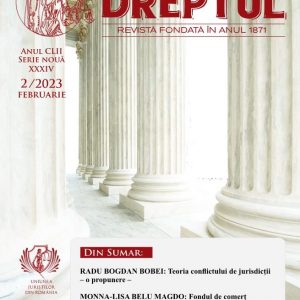-

-

-

-

-

-

-

-

-

-

-

-
 This paper is the first part of a more extensive commentary on Article 5 of the European Convention on Human Rights, which will be entirely published in three consecutive issues of this law journal. The present work assesses the general features of the right to liberty and security as they emerge from the relevant case-law of the European Court on Human Rights. On this occasion, it underlines the purpose of this right, namely the protection of the individual from arbitrariness, and it analyses the general conditions for deprivation of liberty. It also goes on to evaluate the first two such situations of authorised deprivation of liberty enshrined in Article 5 § 1 a) and b) of the Convention.
This paper is the first part of a more extensive commentary on Article 5 of the European Convention on Human Rights, which will be entirely published in three consecutive issues of this law journal. The present work assesses the general features of the right to liberty and security as they emerge from the relevant case-law of the European Court on Human Rights. On this occasion, it underlines the purpose of this right, namely the protection of the individual from arbitrariness, and it analyses the general conditions for deprivation of liberty. It also goes on to evaluate the first two such situations of authorised deprivation of liberty enshrined in Article 5 § 1 a) and b) of the Convention.
